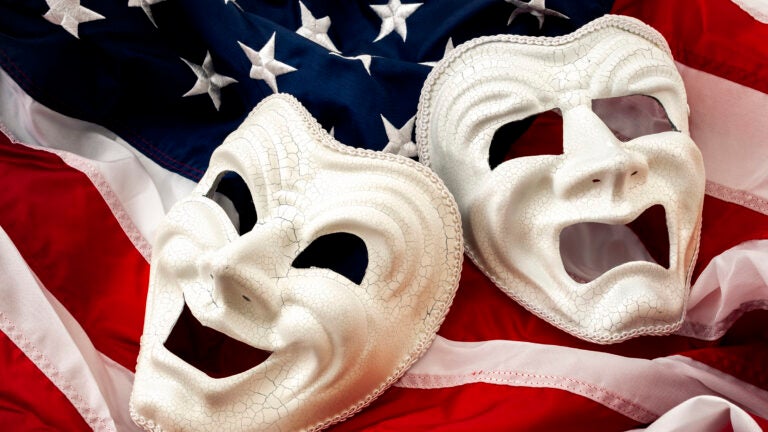
(Photo/iStock)
Politics and theater: USC experts discuss the power of performance ahead of Biden vs. Trump debate
Tomorrow night, President Joe Biden and former President Donald Trump will face off in the first in-person debate of the 2024 presidential election season. With new rules that set it apart from past debates, all eyes will be on how each candidate performs under the revamped format.
From the earliest days of democracy to the spectacle of modern campaign rallies, politicians have long understood the importance of a compelling performance to persuade audiences and garner support. USC experts discuss the history, art and science of performative politics in anticipation of tomorrow’s debate.
Select USC experts will also be available for pre- and post-debate analysis.
Contact: Nina Raffio, raffio@usc.edu or (213) 442-8464; USC Media Relations, uscnews@usc.edu or (213) 740-2215
Windmills, sharks and motors: Why narrative matters
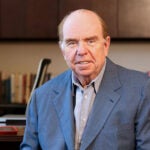 “This year, the Trump campaign has made the mistake of lowering expectations for President Biden. If Biden turns in a good performance, it could go a long way toward allaying questions about his age and whether he is up to the job. And if Trump repeats what he has been doing at his rallies, talking about windmills, sharks and electric motors, without any coherent narrative tying issues together, he is the one who could emerge as someone who can’t be trusted to sit in the Oval Office,” said Bob Shrum, director of the USC Dornsife Center for the Political Future.
“This year, the Trump campaign has made the mistake of lowering expectations for President Biden. If Biden turns in a good performance, it could go a long way toward allaying questions about his age and whether he is up to the job. And if Trump repeats what he has been doing at his rallies, talking about windmills, sharks and electric motors, without any coherent narrative tying issues together, he is the one who could emerge as someone who can’t be trusted to sit in the Oval Office,” said Bob Shrum, director of the USC Dornsife Center for the Political Future.
“Such an outcome would reverse the conventional narrative about the two candidates and strengthen Biden’s position. So, this is one presidential debate where there is everything to play for.”
Contact: shrum@usc.edu
The best storytelling strategy is an ‘active sense of humor’
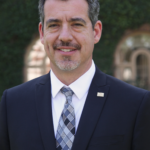
“A little self-deprecation keeps a candidate humble, and a well-timed zinger and a wry smile can get under an opponent’s skin better than any statistic. The more bombastic the opponent, the more well-timed humor becomes a kind of Kryptonite that zaps their cult of superiority. Rather than returning the jest, they tend to respond with irritability, surliness, and eventually, threats,” said Oliver Mayer, an expert in contemporary American theater, drama and playwriting.
Mayer is a professor of dramatic writing, associate dean of strategic initiatives and associate dean of faculty at the USC School of Dramatic Arts.
Contact: omayer@usc.edu
The showman vs. the statesman
 “An early-stage debate offers a valuable visual contrast between the two candidates: a showman versus a statesman. Biden, without an audience and with moderators who can mute the mics, I would surmise, gives him an edge over Trump’s showmanship that thrives on an audience, interrupting and using theatrical distractions,” said Christian Grose, professor of political science and public policy at the USC Dornsife College of Letters, Arts and Sciences and academic director of the USC Schwarzenegger Institute for State and Global Policy at the USC Price School of Public Policy.
“An early-stage debate offers a valuable visual contrast between the two candidates: a showman versus a statesman. Biden, without an audience and with moderators who can mute the mics, I would surmise, gives him an edge over Trump’s showmanship that thrives on an audience, interrupting and using theatrical distractions,” said Christian Grose, professor of political science and public policy at the USC Dornsife College of Letters, Arts and Sciences and academic director of the USC Schwarzenegger Institute for State and Global Policy at the USC Price School of Public Policy.
“The American people have an opportunity to see beyond soundbites, again providing Biden an opportunity to demonstrate as he did at the State of the Union, that he is energetic, together and on top of his game. Trump must prove he is in control, which could be challenging due to his unpredictable nature, though this unpredictability also sets expectations quite low for Trump. On basis, it’s a moment in time that will have impact and given low expectations for both candidates, the debate has the chance to really launch one forward.”
Contact: cgrose@usc.edu
Fashion as political commentary

“What a candidate chooses to wear will want to make a strong impression conveying certain power, influence and values,” said Ann Closs-Farley, assistant professor of costume design at USC Dramatic Arts.
“A male politician usually will wear what’s expected of them, usually a fairly nondescript suit with a white shirt and perhaps a tie that corresponds to their party affiliation. Accessories might include a flag pin to indicate patriotism, or another pin that is known to stand for a cause that the politician supports. In a more casual setting, say, a diner in Minnesota, the politician will want to appear approachable, so they might choose to remove the coat and tie, and roll up their sleeves,” said Closs-Farley.
“At its extreme, a politician might even wear a signature piece of clothing at public events and make that piece of clothing available for purchase so that their supporters can feel like they are part of the candidate’s club. Political clothing choices send a clear message about who you are and what you stand for.”
Contact: clossfar@usc.edu
An ill-timed performance: Debate season amid summer lull
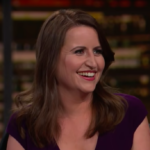
“The first presidential debate historically has been an important kick off — or wake up call — ahead of the final stages of the campaign. It’s critical that the candidates seeking votes of Americans meet on a stage. It is disappointing that it will be held over the summer when few are paying attention and that it’s hosted by a network instead of an independent commission,” said Christina Bellantoni, professor of professional practice of journalism at the USC Annenberg School for Communication and Journalism.
Contact: christina.bellantoni@usc.edu
New debate rules and old media gains
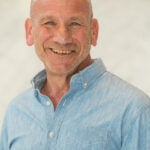 “Mandatory muting and no audience are this debate’s two best innovations. Worst throwback to the Commission on Presidential Debates model? The whole enterprise remains a cash cow and reputation coup for the hosting network,” said Martin Kaplan, research professor of communication and journalism and Norman Lear Chair in Entertainment, Media and Society at USC Annenberg.
“Mandatory muting and no audience are this debate’s two best innovations. Worst throwback to the Commission on Presidential Debates model? The whole enterprise remains a cash cow and reputation coup for the hosting network,” said Martin Kaplan, research professor of communication and journalism and Norman Lear Chair in Entertainment, Media and Society at USC Annenberg.
“Now as then, the debates turn outlets simulcasting the feed into de facto cheerleaders for the credibility of the brand originating it. The public square belongs to the public, but this arrangement monetizes civic life as if it were content for a reality show,” said Kaplan, who also directs USC Annenberg’s Norman Lear Center.
Contact: martyk@usc.edu
###



